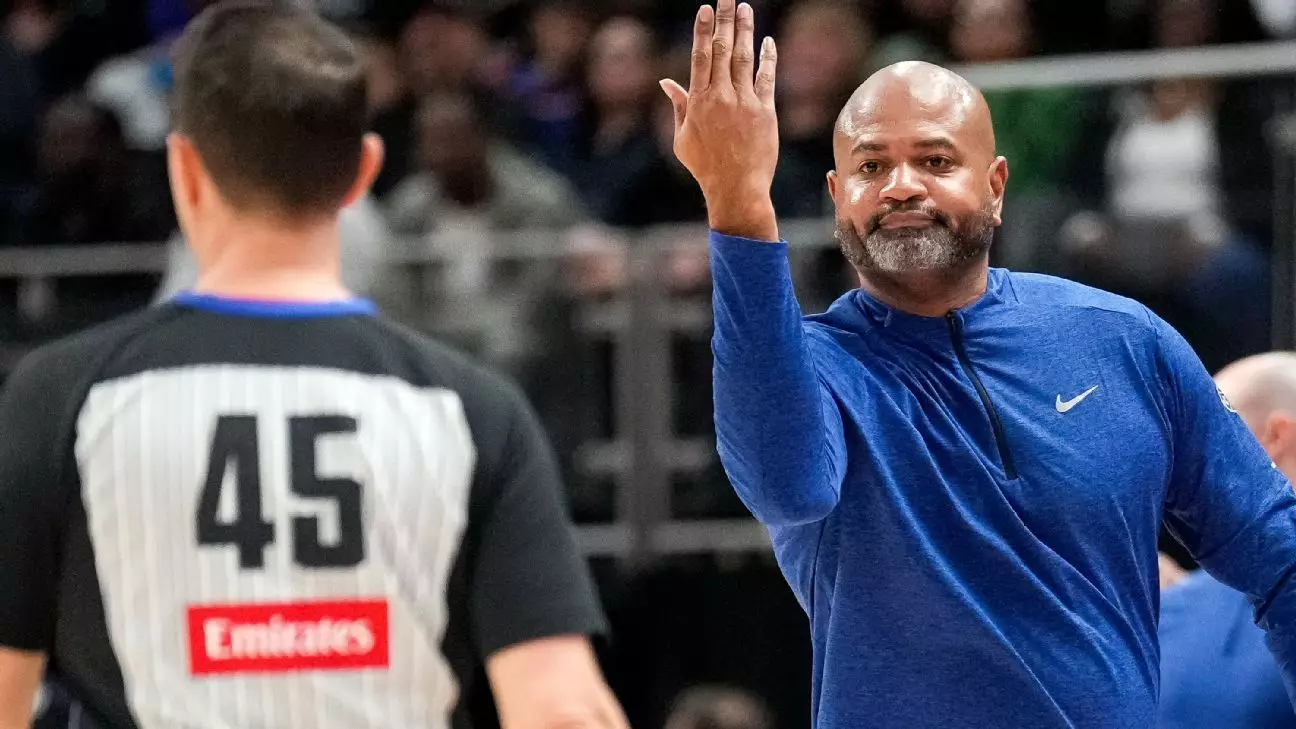In a recent clash between the Detroit Pistons and the Oklahoma City Thunder, tensions flared not just on the scoreboard but also with the officiating crew. Head coach J.B. Bickerstaff expressed his exasperation following the Pistons’ 113-107 loss on Saturday night, specifically regarding the five technical fouls that were handed out in the third quarter alone. This incident has sparked deeper conversations about the standards and consistency of officiating in the NBA. Such situations test the limits of not just the coaches’ patience, but also the players’ tempers—especially when it feels as though the game is being dictated by the whistle rather than the skill on the court.
The Ejects and Their Impact
One of the pivotal moments of the night came when Cade Cunningham, the Pistons’ young star, was ejected after accruing two technical fouls in a mere 48 seconds. This was not merely a case of bad luck; it highlighted a broader issue regarding how players communicate with officials. Cunningham’s frustration was palpable—one could imagine the degree of pressure mounting on a player who is eager to contribute but feels hindered by what he perceives as unfair treatment. Dennis Schroder also received a technical foul during this heated third quarter, further emphasizing the point: escalating emotions often lead to fiery consequences, and this was certainly a night where emotional outbursts cost the Pistons dearly.
Bickerstaff’s Outcry and Its Validity
Bickerstaff’s outburst to the media post-game was notable not just for its emotional weight but for its insight into the ongoing struggle coaches face with officials. He described the referee’s handling of the game as “disrespectful,” a sentiment likely shared by many within the league who have felt similarly slighted. The coach lamented that what should have been a routine review turned into a situation that seemed to favor a strict enforcement of rules while overlooking blatant infractions against his team. Such rhetoric raises critical questions about the referees’ understanding of the game’s flow and the players’ mental state. Is it reasonable for referees to engage in a one-size-fits-all approach to player conduct, or should context be considered in their decisions?
Referee Dynamics: A Game of Metrics
The post-game comments from Oklahoma City’s head coach Mark Daigneault added another layer to this narrative. He mentioned that the officiating crew was known for having a “loose whistle,” implying a tendency to call fewer fouls in general. This can lead to discrepancies in how different teams experience the referee’s presence, especially when one team feels the burden of strict oversight. Metrics and past evaluations of officiating crews come into play in preparation for games, highlighting a crucial aspect of professional sports—the interpretive subjectivity of officiating. There’s an inherent imbalance when one team seems better prepared just because they’ve faced a specific crew before, underscoring the need for referee training that emphasizes consistency across all levels of play.
This debacle was not merely a game lost but a signal that ties into larger concerns over accountability and communication. In a league where emotions run high, perhaps it is time for both players and officials to take a step back and reassess how they interact. The heart of basketball lies in its capacity for passion, and ensuring that both players and referees remain respectful of that passion may require more thoughtful dialogue moving forward.


Leave a Reply